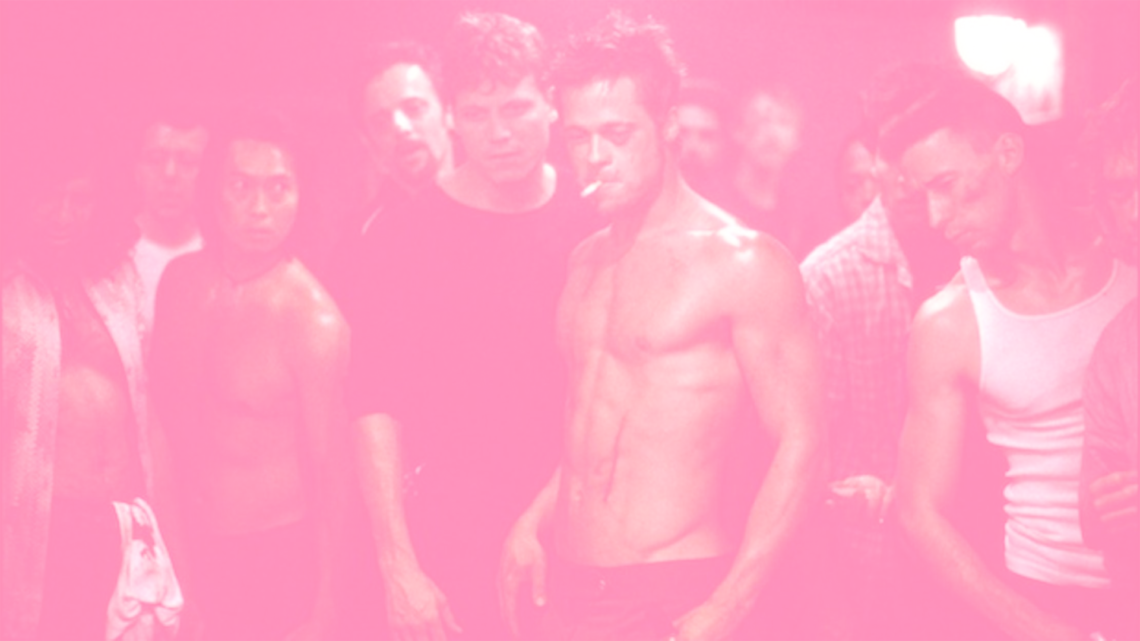When I can’t sleep I’ll often say to myself “You’re going to step into your cave and you’re going to find your power animal.” A line from the scene in Fight Club where Edward Norton’s character attends a meditation class and fantasizes of finding his power animal, a CGI penguin, inside an icy cave. Sometimes I’ll even quote the penguin to calm myself: “Slide.”
When I count to five on my hand I’ll often start by counting on my pinky. Probably a leftover from watching Se7en one too many times when I was younger. Morgan Freeman counts the seven deadly sins like this.
When I watch tv commercials promoting some useless product, I’ll often hear myself whispering “You’re not your fucking kaki’s!” or “We’re the all singing all dancing crap of the world.” Quotes from Tyler Durden’s fourth wall breaking monologue in Fight Club.
And sometimes, but only sometimes, I’ll look at my girlfriend and think “What are you thinking? How are you feeling? What have we done to each other?” A quote from the beginning (and ending) of Gone Girl.
Only in writing this podcast introduction I was once again reminded of how David Fincher is one of my favourite directors. A somewhat strange realisation because I started wondering what that says about myself. His films being these pessimistic, somewhat empathy lacking, meticulously crafted pieces of browns-and-beiges. And green, a lot of green, because David Fincher really hates pink. In a recent interview he said that he hates pink because it makes people look healthy and that, to him, is unrealistic.
Fincher is, not unlike myself, an obsessive perfectionist. Known for his, to quote Ben Affleck, “relentless” number of takes. His opinion is that if you spend $250 million to build a set, get the crew in and line-up the actors, you better use all the time you need to get the best result.
This obsessive nature can also be traced back to his Pandora’s Box of themes. “What in the box?!” you might ask. Well, if you take characters like John Doe (Se7en), Mark Zuckerberg (The Social Network), Jake Gyllenhaal’s journalist (Zodiac), Michael Douglas’ banker (The Game) or the fucked-up couple in Gone Girl, his core set of fascinations seem to be concepts like obsession, social alienation, anti-consumerism, chaos, narcissism and hubris. I’ll hereby thoroughly deny any links between these themes and my own character! But it’s clear Fincher has something to say about the condition humane and it’s not pretty. His worldview, not unlike his colour scheme, is bleak, grim and gritty. And he also has an opinion about his relationship to you, the audience, watching his films. In a making of featurette for The Girl With The Dragon Tattoo he grimacingly says: “I think people are perverts. That’s the foundation of my career.”
Another key ingredient of Fincher films are their endings. They’re not necessarily unhappy endings as much as they are almost always open-ended. For a man who structures his camera movements like they’re a top of the bill ballet performance, he sure likes to keep his endings loosey-goosey; he likes to keep us guessing. And maybe, while the world is crumbling around us, I’ll do the same. [cue Where’s My Mind by The Pixies]

